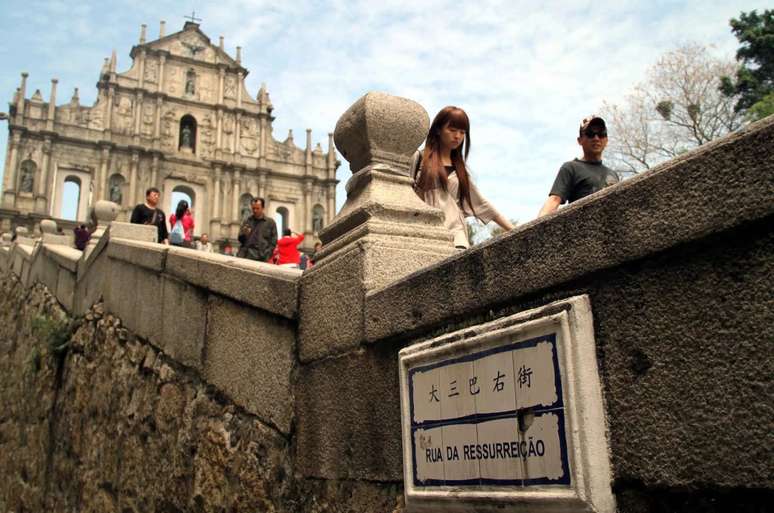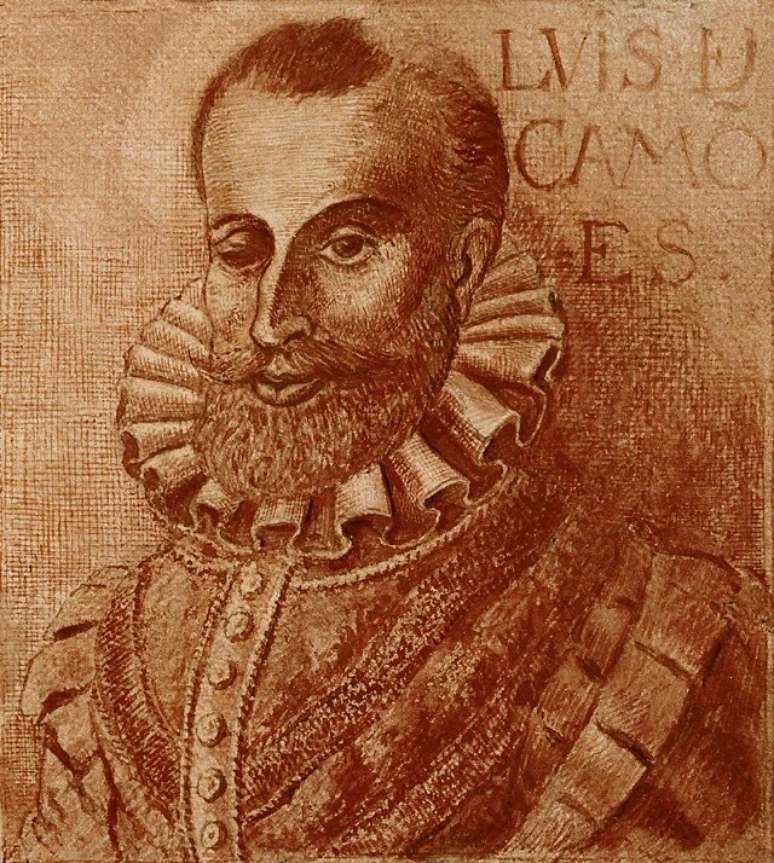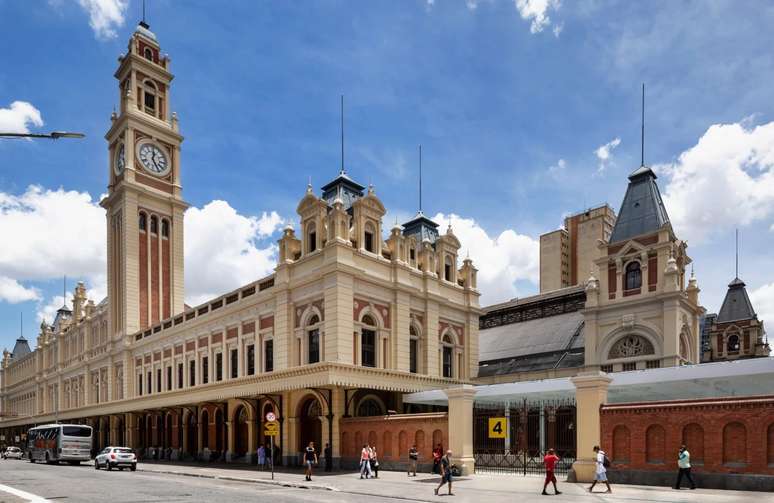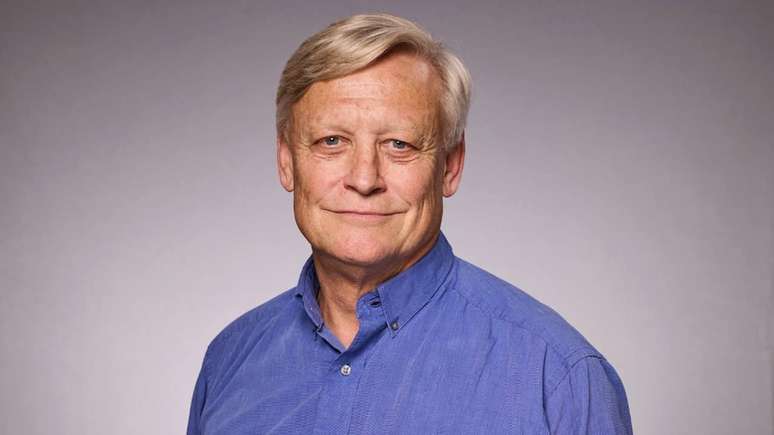It is celebrated next Sunday, May 5th […]
To celebrate World Portuguese Language Day, next Sunday, May 5, the Portuguese Language Museum will have free entry, as well as special programming this Saturday, May 4, with shows, gastronomy and the presence of artists from Brazil, Angola, Guinea-Conakry, Mozambique and Portugal.
One of the highlights will be the closing show, in Praça da Língua, with the Brazilian Fabiana Cozza and the Portuguese of Cape Verdean origins Dino D’Santiago. The free program will start at 10:00 am and last until 7:00 pm (*see details below).
But have you ever stopped to think about the scope of the Portuguese language?
World Portuguese Language Day
Linguistically self-sufficient and, for years, having turned its back on its Hispanic neighbors, Brazil seems to have eyes (and ears) only for languages spoken overseas, such as English.
To celebrate World Portuguese Language Day, which from 2020 falls on May 5, the date established by UNESCO, the Travel by fare lists some curiosities about the language and takes a visual journey through the countries that have Portuguese as their official language.
Although it can be heard on five continents, Portuguese is the official language of approximately 285 million speakers, in countries across South America, Europe, Africa and Asia.
In practice, this means that 3.8% of the world’s population speaks Portuguese, including at least seven million speakers in diaspora communities (those who speak the language abroad), according to data from the International Portuguese Language Institute, based in Cape Verde.
It is no coincidence that it is considered the fourth most spoken language in the world, behind Chinese, Spanish and English.

Officially, nine countries speak the language: Brazil, Portugal, Cape Verde, Angola, Mozambique, Guinea-Bissau, São Tomé and Príncipe, Equatorial Guinea and Timor-Leste. Although it is also one of the official languages of Macao, China, currently only official bodies or the older Macanese communicate in Portuguese.
According to the Camões Institute, responsible for promoting language and culture in Portuguese-speaking countries, Portuguese is the third most used language on Facebook, the fifth with the highest number of users on the entire Internet and is used as the official or I work in 32 international organizations.
Most of the CPLP (Community of Portuguese-Speaking Countries) is located in the Southern Hemisphere, with the largest nation being Brazil and the smallest being the archipelago of São Tomé and Príncipe in Central Africa.

And for the persistent supporters portunhol (which is neither Portuguese nor Spanish), a good justification.
It is interesting to note that between the 15th and 17th centuries a sort of Castilianization of the Portuguese court occurred, due to the various marriages between Portuguese sovereigns and Spanish princesses. However, the bilingualism of that moment would give way to a Spanish with very particular characteristics.
“It was pronounced with a local accent and, moreover, its morphology and syntax often deviated from the norm of the neighboring country”, recalls the linguist Paul Teyssier, in the book History of the Portuguese language (publisher Martins Fontes).
Portuguese is also considered the first language to be globalized in the world (and let’s not be fooled by the Portuguese who crossed borders with the Great Navigations to the Americas and Asia, passing through Africa).

Museum of the Portuguese language
World Portuguese Language Day at the Museum
May 4 (Saturday), from 10:00 to 19:00
Free Entrance
Craft and gastronomy fair
from 10:00 to 17:00
This fair set up in Hall B of the Museum will feature 20 exhibitors selling products of African or Afro-diasporic origins and inspirations. The public will be able to purchase dishes such as acarajé, but also objects such as turbans and handmade jewellery.
Free (no need to collect the ticket).
Ermi Panzo and Slam das Minas
In the Central Hall of the Estação da Luz, at 11:00
The opening of the program will feature the participation of Angolan writer and dancer Ermi Panzo and Slam das Minas of São Paulo, in a performance presentation that will showcase experiences of African art and culture in the diaspora.
The female group will carry on a poetic battle on the reality of women in a city like São Paulo.
Free (no need to collect the ticket).
Fantasy Konate
In the Central Hall of the Estação da Luz, at 1pm
Cultural reference of Guinea-Conakry, the singer and composer Fanta Konatê retraces her 21-year career, in a show that also pays homage to the dancers of the Mandén culture, linked to the 13th century Mali Empire.
Free (no need to collect ticket)
Otis Selimane
In Patio B of the Museum, at 3.00 pm
Compositions that mix jazz, rap, trap and new soul will be part of the show repertoire of this Mozambican singer and educator, influenced by rhythms such as the marrabenta, from his country of origin, and the kwela, from South Africa.
Free (no need to collect the ticket).
Funmilayo Afrobeat Orchestra
In Patio B of the Museum, at 5.00 pm
Brazilianness and Nigerian Afrobeat are part of the musicianship of this orchestra made up of black women and non-binary people.
Free (no need to collect ticket)
Fabiana Cozza and Dino D’Santiago
In the Praça da Língua and in the Museum Auditorium, at 7pm
The Brazilian and Portuguese musician of Cape Verdean origins will close the World Portuguese Language Day program at the Museum with samba, hip-hop and soul, who will be accompanied by a band led by bassist Fi Maróstica.
Free (tickets must be collected from 5.30pm at the Patio A box office – up to two tickets per person)

Source: Terra
Ben Stock is a lifestyle journalist and author at Gossipify. He writes about topics such as health, wellness, travel, food and home decor. He provides practical advice and inspiration to improve well-being, keeps readers up to date with latest lifestyle news and trends, known for his engaging writing style, in-depth analysis and unique perspectives.







